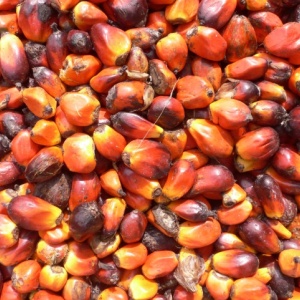
This report from the UK’s Department for Environment, Food and Rural Affairs (Defra), reports that there has been 'steady' progress on certified sustainable palm oil use with palm oil imports 72% sustainable in 2014 - up from 55% in 2013.
It was in October 2012 that UK associations and the government committed to "working towards" achieving 100% sourcing of "Credibly certified sustainable" palm oil by the end of 2015, by signing onto the RSPO (Roundtable of Sustainable Palm Oil).
This is the third update report since the commitments were made in the sustainable production of palm oil: UK statement where various sectors promised to take action. The commitments were made by among others the UK government, Food and Drink Federation and Agricultural Industries Federation and included government procurement of sustainable palm oil, development of advice for government procurers and businesses on sourcing sustainable palm oil, monitoring UK progress towards 100% sustainable palm oil, and the labelling of palm oil in food products. The new report describes how organisations in the UK are meeting their various commitments.
Of the 72% of imported palm oil now coming from certified sustainable palm oil, one of the certification schemes, the so called GreenPalm certificates, makes up between 19-25% of the total. GreenPalm certificates offer buyers a way of 'offsetting' their purchase of unsustainable, or non-certified, palm oil but a recent article highlights critique of this scheme. Purchase of GreenPalm certificate represents one metric tonne of Certified Sustainable Palm Oil (CSPO). Richard George, Greenpeace UK forest campaign team leader argues that companies and governments should focus more on ensuring that their palm oil suppliers are not cutting down rainforest instead of offsetting their unsustainable purchases. The RSPO argues that this online market system (which is owned by oil giant AAK) is a way for firms who do not have "reasonable access" to physical supply chains to support the production of certified sustainable palm oil (CSPO).
One signatory, the British Retail Consortium - which represents major UK retailers such as Sainsbury, Tesco and Spar – reported that its members sourced 91% sustainable palm oil at the end of 2014, of which 87% was physically certified sustainable palm oil.
Despite the advances made, challenges remain: “The organisations have started from different places and they face different challenges. It is recognised that some sectors are making rapid progress whilst others are finding the transition more difficult.”
You can read the full UK statement on sustainable production of palm oil: 3 years on progress report here, Defra’s annual report on sustainable palm oil here, more about the commitments made in 2012 here and see further coverage here.
You can read more about Palm oil, certification schemes and the RSPO.







Post a new comment »